Leimos los primeros cuatro capítulos de Don Quijote para empezar nuestros dialogos sobre la obra de Cervantes.
Tuvimos como visita a Amable Sanchez, Sussete España, Karen Parada, Giancarlo Ibarguen y Carla Hesse. Fue una experiencia extraordinaria, Amable nos introdujo perfectamente a Don Quijote.
Es sumamente interesante. El dialogo no pasó del primer párrafo, pero eso es algo absolutamente positivo. Me hizo aprender que realmente, se puede aprender muchísimo de unas cuantas palabras.
Una de las preguntas que Amable hizo en el dialogo fueron como "¿Cómo nace un genio? ¿Cómo se crea un genio?". AH, no creo que se pueda crear... ¿Qué es un genio? primero que nada.
Amable nos introdujo a orígenes de palabras, tales como hidalgo (quienes por cierto, llevaban una vida diferente a la de otros ciudadanos: no tenian que pagar todos los impuestos y podían portar armas).
Primero que nada Cervantes nos introduce al escenario. "El mundo es el escenario" mencionó Sanchez. Cervantes nunca menciona específicamente donde había nacido Don Quijote. "¡Nació en la cabeza de Cervantes!", dijo Amable, con un tono que realmente me emocionó.
Don Quijote hasta ahora, me ha parecido una persona que hace las cosas porque las ama y porque las aprecia por lo que son. Don Quijote se preocupa por hacer bien lo que se propuso. Aunque la gente lo tome como un loco, cosa que pasa con muchos genios, el se mantiene íntegro a su sueño y deseo.
Arne came into the dialogue and listened carefully to the rubrics. He is the first guest we have that questions and really analyzes our dialogue's rubric. That, I consider is something incredible. Great!
Arne is a neurologist, a "hardcore reductionist" and materialist. He talked to us about his specialization in creativity and consciousness. Then he started speaking on the exciting part. How neurologists are more dangerous than geneticists.
"We are our brain". And it is amazing how, if we have predispositions of taste when we're born, we can be actually programmed to like certain things, and to be in a certain way. Imagine that. It is a powerful tool! But we're on time to start the conversation "what do we do with this knowledge?" he asked.
Then he mentioned he is going to Yale with other scientists to study how can one collide the sciences with humanities. On this, I would claim, that this is a really important step to make (Consilience. Yes.). But not just for the discoveries, but the ethical conversation and the philosophy that will have to be made by connecting these two matters. If there is an ideal political structure for humanity, or universal laws for our behavior, we have to be aware before a maniac politician takes over our brains and design us all to be democrats. Or republicans.
Other thing I learned today, not concerning with the previous topic is a little more about holism. (Consilience again). For things are and they're not caused by an external and spiritual force. There's a reason for things to be.
Returning to the "atomic bomb of neuroscience", we should start the conversation. Really.
We had an amazing dialogue today with Wayne Leighton, one of the teachers of the Business School.
First, the question was asked "Where does political change come from?" some argued relating the answer to how ideas change the structure. But then, Chacho asked, "What is political change?".
We analyzed the process in which this change happens. Rules change the incentives of people, then the behavior changes. This change of rules is of great relevance when talking about political change.
But actually, ideas are of great importance when talking about political change; because actually these are the ones that describe the structure of the new politics. But, still, the change is made by the acceptance of that new rules. There is where intellectuals enter. The intellectuals, in Wayne's words, are those who make the ideas public and are the influential hands. This influential brains are the ones that connect with the politicians, and the ones who design the ideas are the academic scribblers.
The ideas catch fire under certain circumstances, when people pay attention to them. They may stay asleep for centuries or for weeks. But they don't actually make a change if they're not understood.
"He who wants to improve conditions must propagate a new mentality, not merely a new institution" - Mises
The dialogue was welcomed by an earthquake after reading the dialogue rubrics. Everyone panicked and stood still.
Then we went into the question of what MPC is. The dialogue was terrible, and we just roamed in circles. And I wasn't sure of what the dialogue was about. I was totally confused, and I saw John's face and it was also a confused one.
I learned that we should declare first the goal of our dialogue and then we should remind ourselves making a small debriefing if we're not accomplishing our goal in the dialogue.
Dylan Evans, a multi-profession, "versatilist" man, visited the MPC headquarters. He's written a good amount of books, and he is really cool. He talked to us about his constant journeys around the world, and how psychology "isn't a science yet." I remember I asked why, and he said "we haven't acquired enough data yet." I don't agree with this argument. Actually, I think he even has the idea of how something becomes a science wrong. Science isn't dogma, it is a series of results that are result of observation and experimentation; and the study of the mind is something that is really complex to actually just put into words by saying that if this happens, then this is the way a human will act. Decisions are really complex, and I have to dig more into know about the psychology behind it. Dylan is a musician and he recommended us the book "thinking fast, slow." He talked us about behavioral psychology and how by memory people tend to accept or reject risks. He also talked about the virtue of laziness, and I had fun with that. I kind of agree.
After reading Leonard E. Read's essay "How to Advance Liberty" I felt dazzled. According to Read, spreading the ideas of liberty is "a learning, not a selling, problem".
Throughout the text Read emphasizes on how masses are the ones who defines the course of society, and how the approach of the libertarian to the masses should be. For the libertarian thinkers tend to be close minded and omnipotent, their ideas can't be shared successfully. Pretending to be "Know it alls" can be a really dangerous weapon when sharing ideas.
Leonard Read mentions it's not a matter of marketing or a matter of getting into people minds like conquering someone's perspective.
That is what we got to discuss today with Alexander Mccobin, founder of Students for Liberty.
Alexander commented he thinks he disagrees with Read because he believes that marketing is necessary to let the ideas of liberty be known. Alejo disagreed. The dialogue flowed interestingly since that.
Quotes like this went to the table:
"I wish to repeat that the strategy of achieving a free market economy -- or, the same thing, advancing liberty -- does not require "selling the masses," that is, bringing the "hosts of common men," or what Keynes called "practical men," into a state of comprehension. Were that the problem, I would have given up the ghost long ago.
So Read considers that one, by attracting others, can share authentically the ideas of liberty. I wonder if it is possible in a society where most of the people stand willful in nonage and are not willing to get out of that. Is isolation the best option?
Mccobin emphasized on how selling as Amazon.com could be one great example or analogy of how the ideas of liberty should be spread. I agree with that. When talking of the ideas, it would be more kind of a conversation. Out of that, one can invite the other to learn more about the ideas. The thing is, to shine one's own light. That sounds like Emerson.
"The fact that only one in hundreds of individuals encountered shows any interest in or aptitude for the free market or libertarian philosophy should be no cause for discouragement. This is simply a common blindness; there is yet no eye to see the subject; the blindness is the problem! Keep in mind self improvement and the related fact that the art of becoming is composed of acts of overcoming. The blindness, be it recognized, is an obstacle to overcome -- a stimulus to self-improvement. Reflect, for instance, on subterranean animals and those committed to the depths of the ocean -- living in utter darkness. They have no eye to see. What brings forth the eye? Why, light itself brings forth the eye!"
Besides, the dialogue went pretty well. We got to genuinely discuss and people was committed to the rubric. It was a wonderful experience!
The genius geologist Sam Bonis visited the MPC today! He's such a great man, and I learned to much about volcanoes and calderas and also, Atitlan. For example, the volcanoes that are closer to the coast are the more active. You can see with the ashes the "finger print" of the volcano. Guatemala holds earths of the Caribbean, North America and Pacific altogether. I also didn't know that Lake Atitlán is a caldera, product of an eruption around 85 000 years ago. HA! And the ashes of this eruption are found in Colombia AND the coasts of Florida. CRAZY HUH!? There's a theory that inside the lake there's ANOTHER caldera. What's up with GT?! Haha AH! And by the way, there's a caldera really near Guatemala City. Thanks Mayans, maybe you were right about December 21st.
The future rector of UFM visited the MPC headquarters the 1st of October. We had a conversation on the book "Getting Real" by Susan Campbell.
He asked a question: How do we know what is the difference between getting real and getting right? How do we avoid relativism?
Alejo said something really meaningful which I consider really assertive with the question: Susan mentions how we have to relate with what is and not thinking that we can actually control the process of life. Even, when relating we're approaching this search for truth that is something that we can never achieve but still, we thrive to get it. Because, by getting real and relating with what is we have contact with the truth. We have contact with reality.
Being right is often something accepted by the population, (Corn pone opinions!) and it's something that's already part of our tradition: being safe, fake and comfortable. What a mess! Being right doesn't mean necessarily that we're real. Most of the times being real might seem to be as something that is "not right". But that is the funny thing. It's QUITE the opposite.
The flow of the dialogue was really interesting. After reading Getting Real, I think we managed to behave in certain standards such as embracing silence, disagreeing authentically, and being present. Also, the dialogue with Scott Lee was helpful because I just kept trying to make eye-contact with others.
We had a wonderful conversation with these bright men September 27th. We talked about the book "How to Read a Book", and the conversation bloomed amazingly.
When is the book right? How are we sure we don't interpret?
Scott told us an interesting story of an ancient Greek philosopher who didn't like written speeches. (Guess who?) Why? Because you couldn't question them, because you couldn't change them. Is that something valid? Then why do we read? Well, in my opinion, it's not just for knowledge but also and most of all, for understanding. It even opens the chance to articulate new ideas by mixing and recreating. Oh, and by the way.. the Greek philosopher was Socrates.
Then we got to one important question that was formulated at the beginning of the dialogue:
"What is it that we look for in the Greeks and what do we look for in the Romans in today's education?"
The ability to question, the amazing facts of how they communicate and how they were so curious. Our culture is so based in ideas the Greeks elaborated centuries ago. Their way of speaking, according to Scott, was like poetry, music and dance. I wish I could have just been there and saw that.
The Romans were forming a different culture and even if they were being taught by Greek professors, they had a politic tradition which changed many characteristics of the further nations that evolved.
I must say, this conversation was rich and full of new things for me to learn. The dialogue was fluent and people respected the rubric. We listened and learned from Scott and Richard certain ethics like eye contact, sticking to the question and being aware of others.
We had a Skype session with Andrew Humphries today.
He is a great learner, and he studied in St. John's College. There, he learned Euclid.
In order to understand Euclid, we have to look at the foundations was one of the things he shared with us. Also, reading Euclid will be a great challenge because he is actually talking us in a language, and that language is one with definitions and rules one must follow in order to understand. Also, the logic behind Euclid's work is amazing. It is a cool experience, and I could here out from Andrew's words that it will be fun!
|
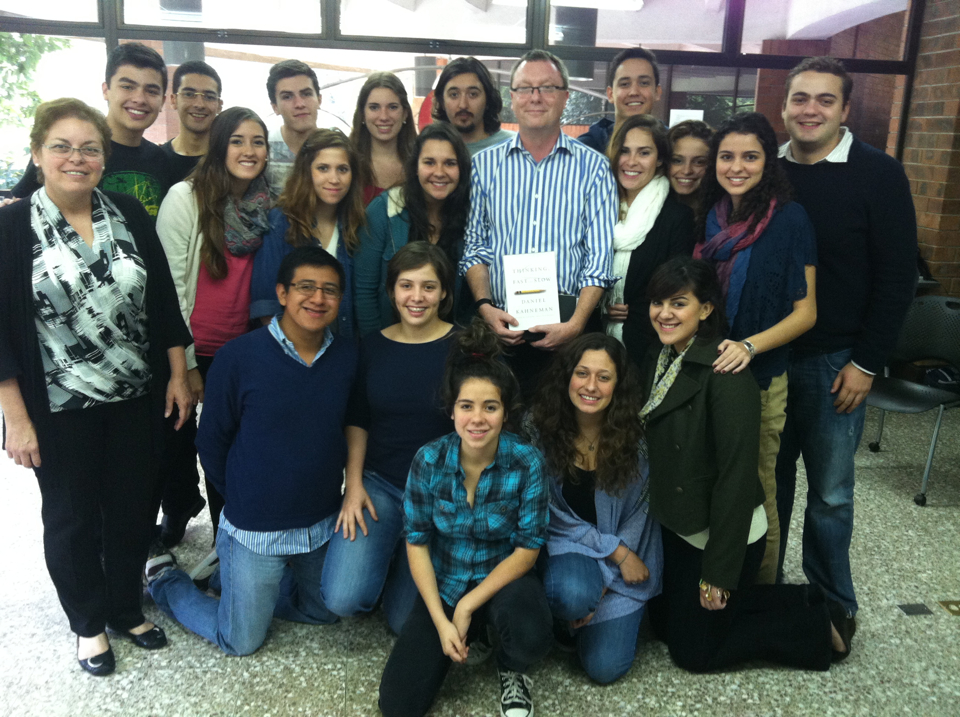
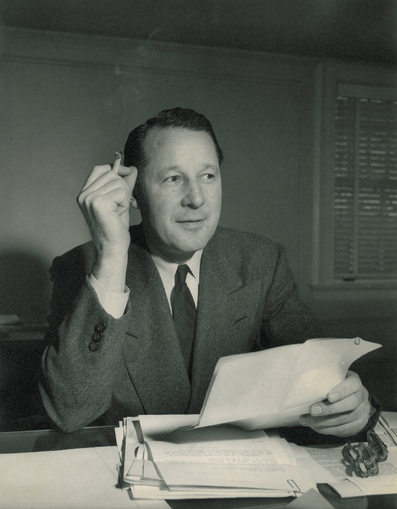
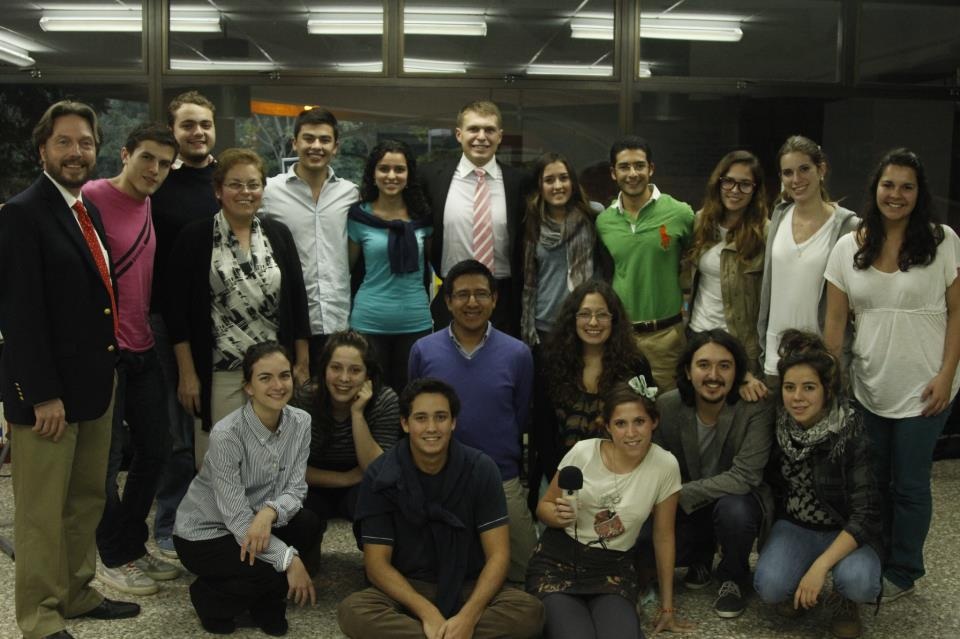
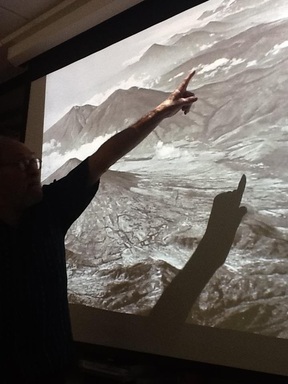
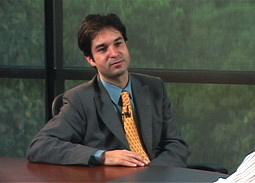
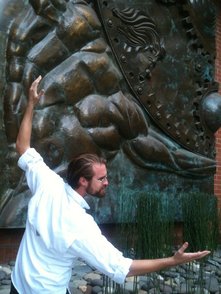
 RSS Feed
RSS Feed